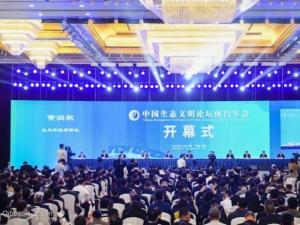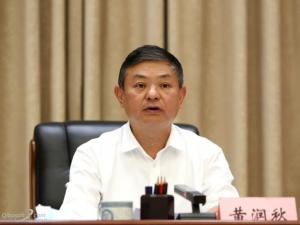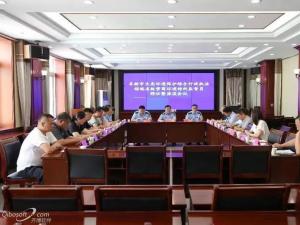Markus Haunschmid:Climate change: Contradictions in global negotiations
|
Markus Haunschmid Climate is one of the central challenges of humanity, comparable to peacekeeping, disarmament, development. The message reached policy makers and the masses: We must act. The big emerging economies of China, India and Brazil show openness considering the question of climate change. The EU made first steps in establishing itself as a motivator and committed it's members to reduce their emissions by 20 percent by 2020 and another 10 per cent down from that level, if other countries are prepared to follow the example. (Gresh, 2006, p.62) On the other side honest fighters for climate change cannot always share the enthusiasm and rather feel like Don Quixote by seeking establishment of local and global regulation systems, which's frame are open and often seem inefficient. In the end there need to be a solution for limiting changes and damages on our planet by climate change which we, human beings, are to made responsible for by our actions we can influence. Can we meet those goals. In the end, these are goals for humanity and the future of your children and following generations. Ultimately, all global player need to play along. Critics persist that the Kyoto Protocol and other measures come too late and they are not enough. The carbon dioxide emissions has contributed to a global temperature increase of 0.8 degrees between 1860 and 2000. The warming over the next hundred years will be between 1.4 and 5.8 degrees, the majority of leading scientists agree. It is appalling that there may be a "point of no return", the harmful effects would be drastically and no one can surely say if we could prevent it, even if we introduce the framework of international institutions and diplomatic co-operations on a big scale. Two examples in the case of the continuation of global warming: The Gulf Stream, which transports warm water from the Caribbean to European Scandinavia, could reverse it's flow: It would carry cold water from the polar latitudes to European coasts, the climate of the west coast would be affected by the cold sea, Scandinavian ports would freeze, UK's temperatures drop. Further on, some island nations where many people live on in Oceania, could just disappear sink in the sea. Same with Bangladesh. The people will head North, seeking new territory they can live of. The problem of climate migrants we can see in Europe will be a global one. This is why it's “very important that whites, blacks and Indians work together to save the forest and the earth as a whole. If we do not fight together, what will become of our future? Your children need an environment that is alive and constantly.” (Quote Kopenawa, 2009) Could we just call it a "loss of natural phenomenon"? Long-term changes in climate lead to the death of some people and guarantee the survival of the fittest- and describe that as evolution and change? Climate change is at various meetings and so-called climate summit of leading highly industrialized countries on the agenda of the Security Council and the United Nations General Assembly, dealing with a large scale of global warming issues. There is hardly a meeting on a higher political level, where the problem is not discussed. (Ott 2008) Negotiations and poverty In the case of the Kyoto protocol, how comes a group of 25 nations negotiate and cobble together an agreement on a world basis that excludes the majority of 190 nations? (Vidal, 2009) On the subject of the policy framework, the United Nations, acting as the instrument for the realization of negotiated climate contracts, works like a federation. One mighty member state, Germany, consists of 80 million people. These are easy to govern, compared to 1.3 billion people in the country with the largest population on earth. Here, nearly 130 million people live on a dollar a day. These are incomparable circumstances. China is a manufacturing country, and the development will take a long time. (UNFCCC 2011, China). Further on, the country is divided geographically in two parts: The east coast is wealthy, the people in the central China often bitterly poor. There is still a tremendous need for development. Then there is the public opinion spread my media and leading politicians: "Part of the problem is when people in the West to tell people in the developing world: "I'm terribly sorry, you cannot use this power plant or buy this car". How can they voluntarily accept a lower standard of living?" Poor people have a right for development. Even though it should be a clean one. For those economically poor people, “the Kyoto Protocol is their hope. If we want to achieve the goal that the temperature rises to no more than two degrees Celsius, we must all share responsibility to limit global emissions”, so- called poor countries and rich countries together. (Quote: Bangladesh at the UNFCCC) Rich countries are confronted with the consequences of climate change by climate migrants. The people whose lives have been destroyed, their crops by the weather, or their land and homes from flooding, there are going to where the wealth is they refused to meet. In the rich countries. Unless Bangladesh, China is controlling and regulating the internal migration. People move to the cities in a historically slow speed. The low economic standards of the average Chinese people per capita is on a low level, which is the reason why China's contribution to climate change is very low. In absolute numbers China is the country with the biggest population world wide, consequently the fact that it's the country which pollutes the world most, in absolute numbers, should not come surprisingly. The dimensions of a large country compared with a small country are different, including contradictions and problems in society. Also, there is not “one China”, the country has many different faces. For example, the GDP of rich cities like Shanghai, Beijing, Guangzhou, Shenzhen is many times higher than the GDP of whole provinces, e.g. Guizhou. About half of China's population is farmers, to a large scale living on subsistence and consuming much less resources. Their ecological footprint is thus smaller compared to the middle shift in the cities, who have multiple homes and cars. This live style of the new middle shift is comparable to the European living standards. The government argues that China as a whole is still a developing country and does what the limited resources allow. “China is the first country that has created a national climate change program. Laws and regulations serve as the main instruments to combat climate change. 2009 the level of CO2 emissions shrank by 13%, compared to 2005, which corresponds to 2000 million tons. Renewable energy grew by 50%, including energy from nuclear power, water, photovoltaic panels, etc. In addition, 30 million rural households got access to bio gas, whereby possible 49 million tonnes of CO2 emissions were saved. In China are the largest forested areas that have ever been created by mankind. Farm land is rezoned and re-forested, making a total of 20 million hectares over the last five years and a total of 54 million hectares of artificial forestation.” (Wen, 2009) In China, 150 million people live in accordance with U.S. standards under the poverty line, accordingly it is an important task to develop the economy, leading to rising living standards of the population. China is undergoing rapid industrialization and urbanization. Coal is still widely used and the central source of producing energy. Under these described conditions it is difficult to reduce emissions. Nevertheless, climate change is a strategic priority and given the difficult tasks and circumstance, emission is still reduced: It is the national goal to reduce CO2 emissions in terms of GDP by 40-45% compared with the level of 2020. To meet the challenge of reducing emissions over this period, the government made this goal part of the national medium-and long-term plan, including monitoring and eva luation nationally. Negative examples of pioneer projects and the national policy frame Given this optimism, on the other hand single pioneer projects showed central strike backs, illustrated by two important examples. Firstly, the example of Dongtan, an island close to Shanghai, did not work at all. The circumstance were more than well: Futuristic plans attracted international attention: The first energy-neutral city, an example not only for China but for the whole world, should be created. It should accommodate 80,000 people by 2020. A city that would allow citizens to live by Western standards, without harming the environment in any way. It also had the most prominent advocate: the mayor of Shanghai. The deputy director of the British experts teams saw the city as the starting signal for the beginning of a new, global, ecological era led by China. The country apparently moved from the industrial age towards an ecological age. The first city to be built without any production of emissions. The effects of this city should spread as far as Europe and America, it should set an example for the world. The first effects of a development that should have a positive impact on the environment, health, long-term energy security and many other areas of society. (McGray 2007, Faxon, 2008, Fox, 2009) The former Mayor of London was enthusiastic for the Chinese project and his motivation infected important politicians of the London government. The city Dongtan, constructed on 630 hectares with public transport system, without carbon dioxide emissions, should be supplied by renewable energy. Further on, he town on the island in Shanghai neighborhood should be commercially attractive and provide a high quality of life. (London Government 2006) This prestigious project came to fall for domestic, political reasons. The most consequent supporter came into conflict with the law and was deposed. With his fall, the biggest supporter fell and with him the project. It was a vision that unfortunately could not be put into action. Secondly, the rural model village Huangbaiyu: It should provide a sustainable solution for peasants and villagers. Although this project completed, it failed for other reasons. Only three of the 42 buildings were build of pressed earth and hay. For the rest of the buildings molded coal was used. That change made the houses less attractive. Therefor in part because of the supposed health risks, only a few houses were sold. “Even if the houses were cheaper and even increase if the income of the people would, people would not spend the money on buying those house. They would prefer to send their children to study or pay a surgery for their grandmother, or open a business. The assumption that people wanted to buy a new home, is a misconception.” The price of eco buildings was 100 000 yuan, while prices for apartments in the area around coasted started from 40,000 yuan. Much more than people are willing to pay. (Toy, 2006) The rural population is too poor to afford it. Due to health concerns and economical reasons of the target group, concluding in miss-planning, this innovative project failed too. Summarizing, these examples show the good intention of the initiators, but the failing for different reasons. In both cases, the gathering of information for further projects would have been possible, together with support for such pioneer projects with a huge potential of generalization on a large scale (all over China and even internationally). The starting investment might be big and risky, concentrating the hopes of participants and experts. So it's a real pity no more projects like these are realized. In both cases more support from the central government could have lead to further attempts for a success and further expansion in accordance with the Chinese political system. The latter works differently from the Western model.The seize of the country is used to try different models in different provinces. One well known difference is the former Chongqing model of Bo Xilai (including gras root democracy attempts, fight against corruption, social welfare even for migrant workers) and the Guangdong model in the coastal region (export oriented industrial production). Similar to the mayor of Shanghai, the Chongqing model was stopped by removing it's personified representative Bo Xilai, giving other models way. Chinese experts are experimenting with mechanisms or new concepts from the West first before it is generalized and introduced to the whole country, if it is suitable. Such a process takes years. (Heilmann 2008) The system does not work anymore like it did in Mao's China. In those days some policies were introduced, leading to huge disasters, like the Great Hunger during the Cultural Revolution. It there's a working hero, he is not propagated to a model for the whole country. In modern times, it takes time to research if his strong points are suitable for other systems, before his methods are introduced to the whole country by policy makers. That's just what's happening in the field of ecology. It might take some years for a problem to be addressed, but as soon as the decision it made that successful local models get introduced in the whole country, it happens quite fast. That is called scientific development. Central planning based on empiric data plays a huge role. Then again, mechanisms in the political-economic sphere work different to those of ecology, since it is not essential for stabilizing the system and satisfying the maximization of profits of the upper class, which is well connected to the ruling elites. On the priority list for national policy, ecology takes is place after national security and economical growth which is seen to lead to rising living standards of the masses. Chinais a very decentralized country, maybe comparable with the European Union or the US. The provinces enjoy freedom for their own policies on many fields. In a given frame they may develop in different directions by introducing their own reforms. The central government just sets national goals and gives a frame for the direction of reforms. Ecology has to be seen in this frame. However, since China describes itself as a developing country, it might not have the courage to seek an own way of green development, giving the fact that innovative projects other to western countries' are not supported with planning skills of academia China describes itself as a scientific society, society is given a high priority it it's theoretic argumentation. As soon as it comes to innovative approaches though, science is not given way. The decision on how resources for planning and realizing a project are used, are decided by the central government. This way the decision of the development of society stays a political one. This is based on local and provincial projects. The responsibility for the succession of such projects lies by local and provincial leaders. Given the examples of Dongtan, Huangbaiyu and Bo Xilai, most innovative ways of development seem not to deserve the support of the government and are rather let down. This has an effect on the motivation of initiators of such projects and will surely not lead to an own way of Green Development of China, but rather support the theory that China as a developing country will develop empirically, by following the example of already industrialized countries like the USA or Europe. The hopes for a Chinese low- carbon development, from a low industrialization level to a low- carbon industrial society is thereby destroyed, since the reliability on not renewable resources like coal will continue. Chinaon the way of developing ecology in an international context Chinais implementing very positive examples by becoming the largest investor in alternative energy -- in absolute terms. Still, renewable energy, e.g. wind energy and solar energy, are promoted on a big scale. One project, the "Asia Pacific Partnership for the Development of Clean Technology", although compatible with the Kyoto Protocol, was rejected by the EU. Like for China, for the EU it also takes time to negotiate and to make compromises, time we do not have. The industrialized countries' grew by high rates of CO2 emissions. Now China develops by selling its environmental and labor in exchange for capital and know-how from Western companies. The business is growth against declining living standards in environmental terms. China leaned form it's history that it needs to buy concessions from the West for high costs. This mechanism often occurs in developing countries, where phenomenons such as corruption, gross pollution are on a higher level compared to industrialized nations. It's the combination of expensive and energy-intensive industrial production that drives the level of world's greenhouse gases in the air. These are the consequences concluding from industrialized nations' policy: China pays a high price for the technology it uses for national, economical progress. The economic and financial crisis we are facing today makes this strategy more difficult since exports go down and profits increase slower. The focus of decision makers in politics in China and most countries of the world is still on economical, not ecological development. In the end it comes to negotiations and conferences with limited output. Awareness is created among the participants, but not sufficient and concrete actions come out. Technically spoken, the circumstances are given: The progress in scientific and technical fields lead to improvement and cost reduction of renewable energy technologies. Not to mention the Internet, the global information transmission makes real time coordination possible without delay. Discussions can be done directly, results can be compared. The existing scientific evidence can be eva luated and support policy making. This all is possible on a global level. The big question is how to implement it? Awareness of evidence is not enough, actions must follow. One central barricade that must be broken down is the enormous distrust among countries leaderships. “To meet the challenge of climate change, the international community has to build trust, find common ground and develop cooperation.” (UNFCCC 2011, China) Chinamade a proposal for the following actions (Wen Jiabao; own translation, IPCC, 2011) The global community needs to put together all usable, technical potential for renewable energy in all areas and strengthen fight against climate change most effectively. The conflict between technical and institutional challenges needs to be addressed. Of course, such a huge task on a global scale is connected to enormous costs, a transformation of the mode of production of world energy costs a lot of money, the various renewable energy technologies must be suitable for mass production, so that an alternative energy production systems can be practically applied. “We need to develop a cost-benefit analysis.” Any system, any new technology brings us which advantage, what are the costs if we continue as we did before, what are our opportunity costs? What does it cost us to wait with the new energy's introduction? These important questions need to be considered together. We need to take in account future developments of emerging countries. The emergence of these countries from a largely agrarian to an industrial-dominated economy is one of the biggest challenseen Also, we need to provide opportunities on making the renewable energy sector grow to meet the needs of developing countries. That means we have to offer them ways and provide them with tools to make green development possible. The scope for possible approaches is enormous, the central question is whether or not we can realize the potential of the prevailing economic model. Many scientists blame the policy of providing too few results as the output of the debates among the global players and beyond. National politicians accuse each other for the blockade: This is an expression of the position of the political elites of individual countries, reflecting the basic value of the economic model is build on: Individualism. This value dominates the discussion and is a common view of the global players at the bargaining table. They think in particular interests, they mix the negotiation up with a zero-sum-game, including that they have to “win” the negotiation. Each party pursuit it's own geographical (national) economic interest and wants to use the negotiations to get an advantage compared to their competitors. This mechanism is an expression of social thinking and the prevailing economic system that provides individual interests before collective interests. In the end we should all pull together and work together globally. Given the predominant economic system, possibilities are limited, since the USA as the most individual global power is not willing to make concessions at a big scale. The world would need a concrete action plan with a concrete and detailed global plan, with binding goals and control organs. That's the only approach with a change to put the academic knowledge about the disastrous reasons of global change, let's call it theory, in practice. The concept of a global climate policy can be seen already that it takes a large amount of planning in order to realize the goal of limiting global temperature rise to two degrees Celsius. The only way is to modify the economic system in the direction of more planning and coordination. Rich countries must move forward and reduce emissions dramatically, while poor countries have to find ways to generate income for the people, and at the same time maintain the emission levels per capita at the same level. It must also be said that there is no country with high income but low pollution: France, Sweden and Switzerland are the industrialized countries with the lowest per capita emissions, but it is still far too high- although already a high level of renewable and Nuclear energy is reached. Nowadays, all the countries together must take a different, planned and coordinated development path: Economic growth and the environment shall not constitute a contradiction. The components must form a unit, it is important to find ways for green growth. used literature: Dokumente des XVII. Parteitags der Kommunistischen Partei Chinas, Verlag für fremdsprachige Literatur, Beijing, 2007 McGray, Douglas: Pop-Up Cities: China Builds a Bright Green Metropolis, 04.2007 http://www.wired.com/wired/archive/15.05/feat_popup.html(seen 20.02.2012) Fan Gang u.a.: The Economics of Climate Change in China: Towards a Low Carbon Economy; Stockholm, 2011 Faxon, Hilary: Whatever happend to dongtan, Shanghai, 2008 http://shanghaiist.com/2008/06/24/whatever_happened_to_dongtan.php(seen 28.03.2012) Fox, Jesse: Dongtan, China's Flagship Ecocity Project, R.I.P. 05.01.2009 http://www.treehugger.com/sustainable-product-design/dongtan-chinas-flagship-ecocity-project-rip.html(seen 20.02.2012) Heilmann, Sebastian: China als lernendes, autoritäres System: Experimenierende Staatstätigkeit und wirtschaftliche Modernisierung, Trier 2008 IPCC, 2012: Summery for policy makers,in: Managing the Risks of Extreme Events and Disasters to Advance Climate Change Adaptation. Cambridge University Press, Cambridge, UK und New York, USA, S.1-19 http://ipcc-wg2.gov/SREX/images/uploads/SREX-SPMbrocure_FINAL.pdf(seen 15.04.2012) Krause, Joachim: Nach Kopenhagen. Welchen Multilateralismus benötigt erfolgreiche Klimapolitik? 03./04.2010 Kopenawa, Davi (Schamane des indigenen Volkes der Yanomami aus dem Amazonasgebiet Brasiliens): Dalai Lama des Regenwaldes‘ überbringt Großbritannien Klimawarnung, Brasilien, 28.05.2009 http://www.survivalinternational.de/nachrichten/4627(seen 07.11.11) Londoner Regierung: London looks to the east for inspiration to cut emissions 13.04.2006 http://www.london.gov.uk/media/press_releases_mayoral/london-looks-east-inspiration-cut-emissions(seen 05.04.2012) Gresh, Alain (Hg.): Atlas der Globalisierung, Die neuen Daten und Fakten zur Lage der Welt (2006), Le Monde diplomatique, deutsche Ausgabe, Paris 2006; ISBN: 9783937683072 Ott, Hermann E. u.a.: The Bali Roadmap: New Horizons for Global Climate change? in: Climate Policy, 8, Nr 1, S. 91-95, 2008 Toy, Mary-Anne: China's first eco-village proves a hard sell 26.07.2006 http://www.theage.com.au/news/world/chinas-first-ecovillage-proves-a-hard-sell/2006/08/25/1156012740582.html?page=fullpage(seen 29.03.2012) UNFCCC (United Nations Framework Convention on Climate Change), Report from the representative of China, Durban 2011 http://unfccc.int/files/meetings/durban_nov_2011/statements/application/pdf/111207_cop17_hls_china.pdf(seen 20.02.2012) UNFCCC, Report form the representative of Bangladesh, Duban 2011 http://unfccc.int/files/meetings/durban_nov_2011/statements/application/pdf/11208_cop17_hls_bangladesh.pdf Vidal, John: Rich and poor countries blame each other for failure of Copenhagen deal, Copenhagen, 19.12.2009 http://www.guardian.co.uk/environment/2009/dec/19/copenhagen-blame-game(seen 10.11.2011) Wen Jiabao in Kopenhagen 2009,UNFCCC, 1.Plenum, 2009, http://unfccc2.meta-fusion.com/kongresse/cop15_hls/templ/play.php?id_kongresssession=4272(seen 15.03.2012) |
我来说两句
已有0评论 点击全部查看






